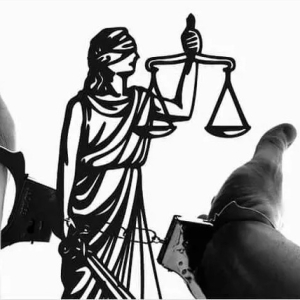
.png) Joseph Maliakan
Joseph Maliakan

The three criminal law bills, the Bharatiya Nyaya Sanhitha, the Bharatiya Nagarik Suraksha Sanhitha and the Bharatiya Sakshya Sanhitha, which replace the Indian Penal Code 1860, the Criminal Procedure Code 1898 and the Indian Evidence Act. 1872, respectively, passed by the Parliament in the winter session, without any debate, with most opposition Members of Parliament under suspension, contrary to claims by the Union Government, are nothing but sugar-coated bitter pills.
If implemented without significant revisions, the bills notified in the Gazette of India on 25 December 2023 will adversely affect our fundamental rights guaranteed by the Constitution of India, especially free speech and the right to privacy. With the implementation of the stringent provisions of the bills throughout the country, the State will become unbearably authoritarian and will slip into a permanent state of emergency.
Introducing the bills in Parliament, Home Minister Amit Shah said that criminal justice is a subject in the concurrent list of the Indian Constitution. In this context, the first question is whether states have been consulted about the new bills. It is pretty unlikely that the Union Home Ministry has the approval of the states to introduce the present Sanskritised version of the criminal laws. Like in the case of the infamous farm laws, the Union government has shown scant respect for the principle of federalism and the states' rights.
Home Minister Amit Shah also declared in Parliament that the new criminal laws were introduced to replace the archaic, colonial-era laws which were intended to subjugate Indians. The new laws, the Home Minister asserted, aim to deliver speedy justice to the people. However, several human rights activists and lawyers have described the new regulations as ten times more draconian than the colonial laws.
Under the Indian Penal Code, any arrested person can be held in police custody only for 15 days. Under the Bharatiya Nyaya Sanhitha, detention under police custody has been extended up to 90 days, a sixfold increase, and the Union government claims that it is aimed at providing political, economic and social justice to the common people! The police, our experience shows, are bound to misuse this clause to harass individuals just to teach them a lesson.
The new law replacing the IPC dispenses with the provision for providing legal aid to everyone at the time of arrest. It makes the enforcement authorities and the prosecution extremely powerful. In a country where stories of police and even army brutality are on the increase, arming them with unbridled power can only lead to further misery for the general public.
No attempts have been made to improve police accountability in the new rule books. Even today, 75 years since independence, the police and other security forces function under the colonial mindset. And arming the police and the prosecution with increasing power will only lead to heaping further injustices on the ordinary people.
The most critical reform made in the new laws, the Home Minister claimed, is the repeal of the colonial law on sedition IPC 124A. However, even a very cursory examination of the new law reveals that sedition has been reintroduced with renewed vigour, with vague provisions which will create room for totally arbitrary application.
In the new law, sedition has been replaced with Clause 150, titled "Acts endangering sovereignty, unity and integrity of India". The clause criminalises acts "endangering the sovereignty, unity and integrity of India", which includes using electronic communication to excite armed rebellion, subversive activities, secession, separatism, or to endanger India's sovereignty, unity and integrity.
Actions similar to sedition will be penalised with a broader scope and application due to its vagueness, which will have far-reaching adverse effects on free speech and dissent. Even more dangerous is that punishment under Clause 150 mandates imprisonment under all circumstances, unlike Section 124 A, under which the penalty was limited to a fine. One of the worst features of the new law is the inclusion of electronic communication to commit seditious acts.
The logistics for implementing the new laws are unclear. Meanwhile, the Home Minister declared in the new year that the framework for implementing the new regulations will be ready in the Union Territories by December 2024. According to the officials in the Home Ministry, the laws will have to be implemented throughout the country simultaneously.
Further, the legislation will be notified separately in Nagaland as Article 371 A of the Constitution grants special provisions to the State and tribal areas under the Sixth Schedule of the Constitution in Assam, Meghalaya, Tripura and Mizoram.
The confusion about implementing the laws was highlighted in Delhi, where several magistrates asked the Delhi Police why it registered cases under the IPC when the new laws were in place. The Delhi Police have begun studying the law just yet and still need to start preparing the implementation framework.
Through the laws, the Union Government is trying to digitise many aspects of criminal procedure and include digital evidence under the ambit of evidence law without specifying procedural safeguards. In several states where FIRs are registered in the local language, one fails to understand how these laws will be implemented and made compatible.